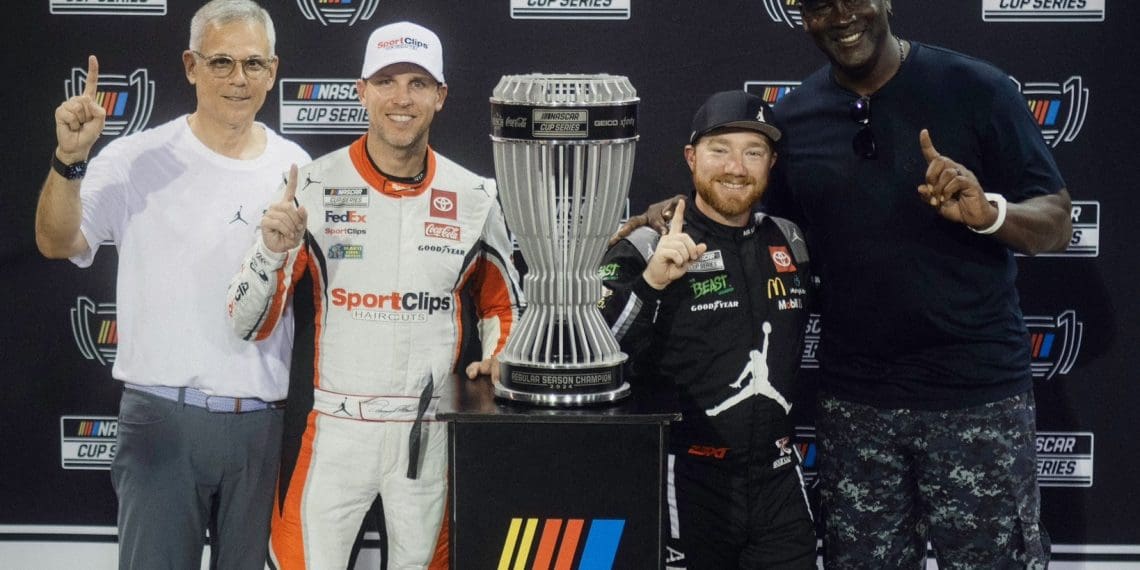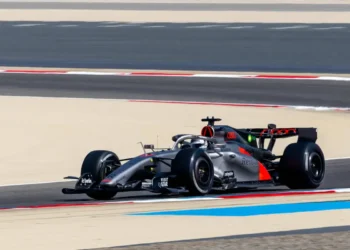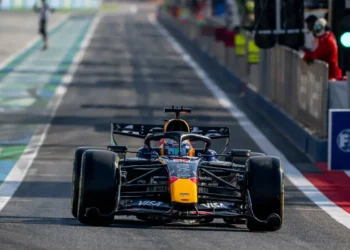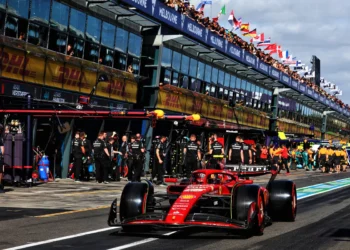The tension between NASCAR and its teams has escalated dramatically with 23XI Racing and Front Row Motorsports (FRM) filing a federal anti-trust lawsuit against NASCAR. Co-owner of 23XI Racing and current driver for Joe Gibbs Racing, Denny Hamlin, has taken a bold stand against what he sees as NASCAR’s unfair treatment of teams, accusing the organization of monopolistic tactics.
At the center of the lawsuit is NASCAR’s push for teams to sign a 100-page contract with only 48 hours’ notice, leaving no room for negotiations. The lawsuit claims NASCAR used a divide-and-conquer strategy to force most teams into submission, putting them in an impossible position.
Hamlin, a longtime NASCAR driver turned team owner, expressed his frustration with the system he once thought he knew. Reflecting on how his perspective shifted after re-investing his earnings back into the sport, Hamlin admitted: “I didn’t realize until re-investing the money that I’ve made as a driver back into the sport to put on a show for Jim France and NASCAR, how unfair this whole system is.”
Hamlin’s grievances stem from NASCAR’s powerplay in the charter negotiations, which left teams with little choice but to comply. For Hamlin and his partners at 23XI Racing, this aggressive stance by NASCAR became a tipping point. “We just got to a tipping point where we all said, enough is enough and let’s exercise some options,” Hamlin declared, reinforcing the belief that the lawsuit was a necessary step to protect the interests of the teams.
“A Divide and Conquer Strategy”
Hamlin’s partner in the lawsuit, Bob Jenkins, who has been part of NASCAR since 2005 as the owner of FRM, provided further insight into NASCAR’s tactics. Jenkins described how NASCAR abandoned group negotiations and shifted to dealing with teams individually after initial discussions failed. He believes this was a deliberate strategy to weaken the collective bargaining power of the teams.
“NASCAR set out on this journey to basically divide and conquer, and they were largely successful. I hate to say that but they were largely successful,” Jenkins remarked, emphasizing the manipulative nature of the deal-making process. He expressed frustration that NASCAR still uses tactics from its older “playbook” to push teams into submission. Jenkins felt this was a clear attempt to intimidate the teams into signing the new agreement without fair consideration or negotiation.
“A Battle for the Future of NASCAR”
This legal battle could have significant implications for the future of NASCAR, as 23XI Racing and FRM aim to challenge the current system, which they believe is rigged in favor of NASCAR’s monopolistic control. Hamlin’s and Jenkins’ bold actions may inspire other teams to rethink their position, potentially reshaping how NASCAR handles its relationships with teams moving forward.
With NASCAR using its power to push through a deal that benefits the organization but limits the flexibility and profitability of teams, the lawsuit aims to shift the balance back to a fairer, more competitive system. For Hamlin, Jenkins, and others involved, the outcome of this legal battle will determine whether NASCAR’s long-standing approach can continue unchecked, or if teams will finally gain the leverage they need to thrive within the sport.
As the legal proceedings unfold, the entire NASCAR world will be watching closely to see who emerges victorious—and what this means for the sport’s future. Will NASCAR’s power hold strong, or will the teams, led by the bold voices of Hamlin and Jenkins, force a seismic change in how the sport is run?
Photo from Denny Hamlin (X) Account










